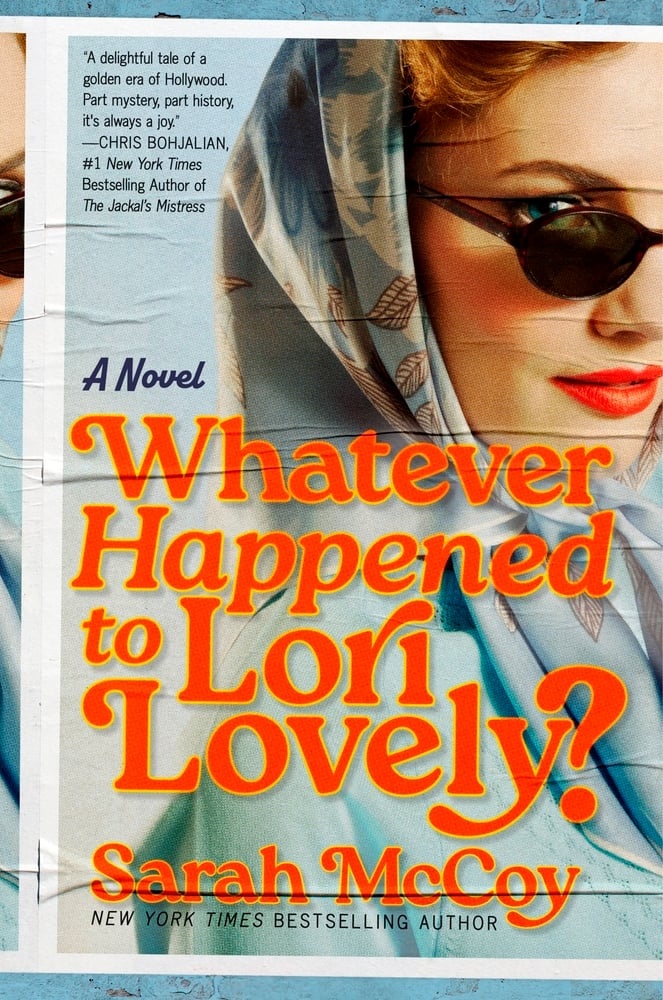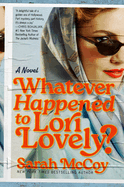Fanny Howe, a poet "whose words mined her own complicated personal history, expressing pathos, and beauty in a life of upheavals," died July 8, the New York Times reported. She was 84. Howe's "heritage and her life story--one of contradiction and struggle as a scion of Boston Brahmins, a civil rights activist and the mother of biracial children--shaped a discursive verse style that veiled sharp edges and melancholy resolutions."
Howe published more than two dozen books of poetry and more than 20 works of fiction, as well as memoirs, essays, and children's books. She was also a professor of writing and literature at the University of California, San Diego.
Her many honors include being named a finalist for the 2014 National Book Award for Poetry for Second Childhood; the Poetry Foundation's 2009 Ruth Lilly Poetry Prize; the 2001 Lenore Marshall Poetry Prize from the Academy of American Poets for Selected Poems; and a finalist for the 2015 International Booker Prize.
Through her father, Harvard Law School professor, historian, and civil rights activist Mark De Wolfe Howe, "who spent his 1965 summer vacation in Mississippi defending other activists, she was a descendant of Josiah Quincy III (1772-1864), a mayor of Boston, congressman and president of Harvard, and of other famous Quincys," the Times noted. "Her mother was the Irish playwright, actress and novelist Mary Manning, friend of Samuel Beckett and founder of the Poets' Theater in Cambridge, Mass."
"Roots don't give up," Howe wrote in her poem "The Definitions":
Ghoulish are the ghosts
Of time past: ancestors
With our same names.
In a recent interview with the Paris Review, Howe described herself as a "a sort of permanent adolescent wanting to participate in a rebellion against grown-ups." She dropped out of Stanford University and later joined the Congress of Racial Equality. She married a Black writer from Montgomery, Ala., Carl Senna, who became an editor at Beacon Press in Boston.
"The legacy of her activist father pushed her into political and social engagement--she fought for school integration, among other things--not calculated to ease a path back to Beacon Hill," the Times noted.
Howe experienced desperate times as a single mother in the late 1970s, trying to provide for her three children with occasional part-time teaching jobs. She kept writing and publishing, however, during a period that her daughter, the writer Danzy Senna, recalled in an interview as "bohemian and peripatetic.... She was living in another state of being, constantly scribbling things on napkins."
Howe's first book of poems, Eggs, was published in 1970, followed by nine more by 1990, as well as eight books of fiction, including Holy Smoke (1979) and In the Middle of Nowhere (1984). Her poetry collections also include Manimal Woe (2021), Love and I (2019), The Needle's Eye (2016), Come and See (2011), On the Ground (2004), and Gone (2003). Senna said her mother had just completed another book of poems, to be published next year.
From Howe's poem "The Cenotaph":
I want to leave this place
unremembered.
The gas stove is leaking
and the door of the refrigerator
stained with rust.
The mugs are ugly
and there are only two forks.
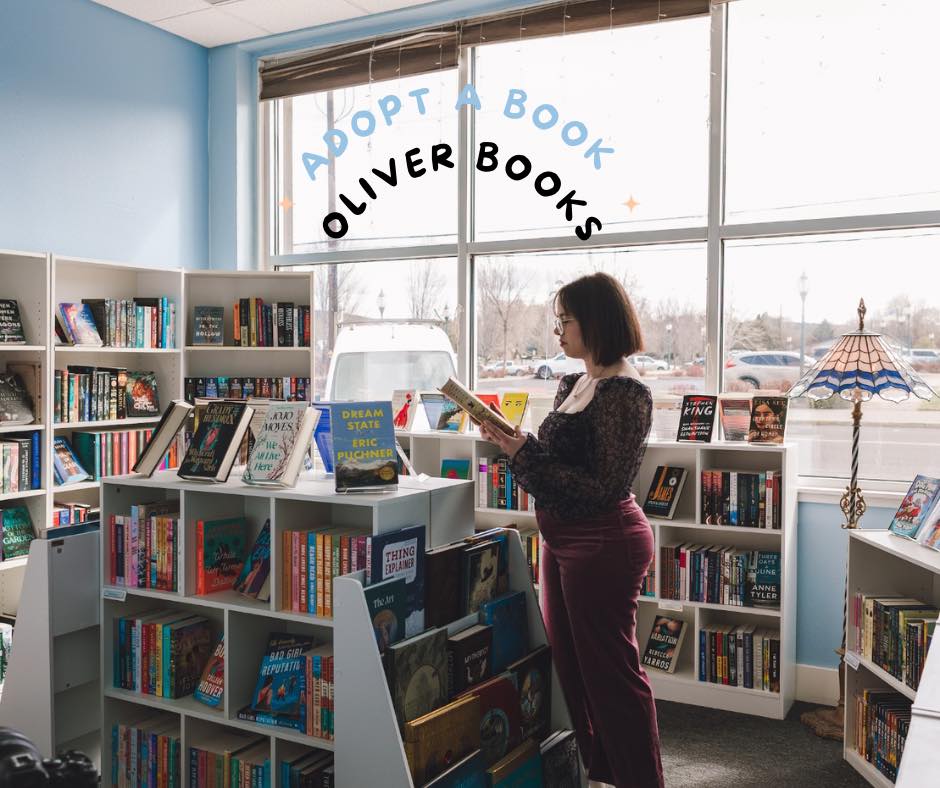 As important as the books are, the owner has gone out of her way to create areas in the store for people to sit and read together.
As important as the books are, the owner has gone out of her way to create areas in the store for people to sit and read together.






SHELFAWARENESS.1222.T1.BESTADSWEBINAR.gif)
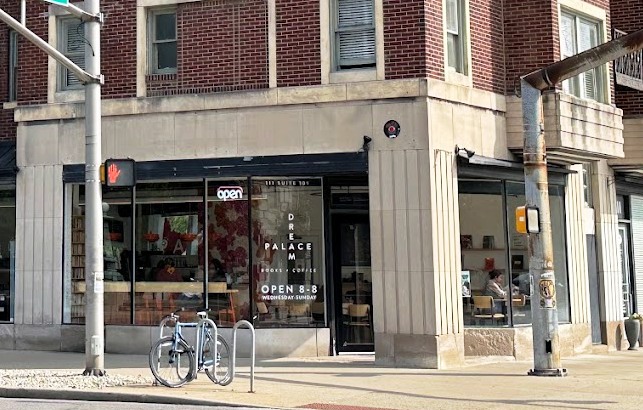 Dream Palace Books & Coffee
Dream Palace Books & Coffee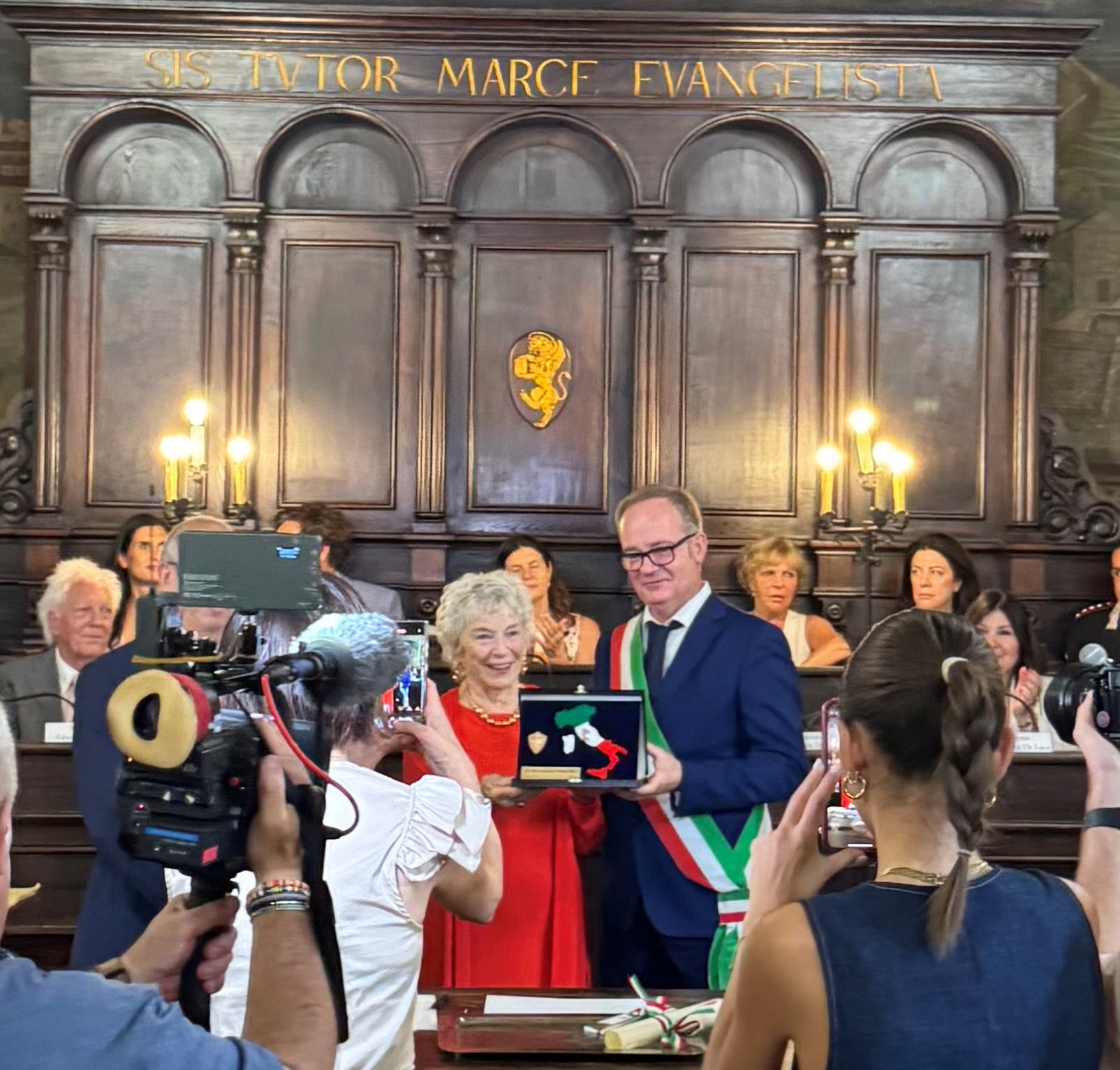 Frances Mayes--author of the bestselling Under the Tuscan Sun--was recently awarded Italian citizenship in a ceremony held in the Sala del Comune of Cortona. The "special merit" honor is based on her contributions to Italian culture, and has never gone to an American writer.
Frances Mayes--author of the bestselling Under the Tuscan Sun--was recently awarded Italian citizenship in a ceremony held in the Sala del Comune of Cortona. The "special merit" honor is based on her contributions to Italian culture, and has never gone to an American writer.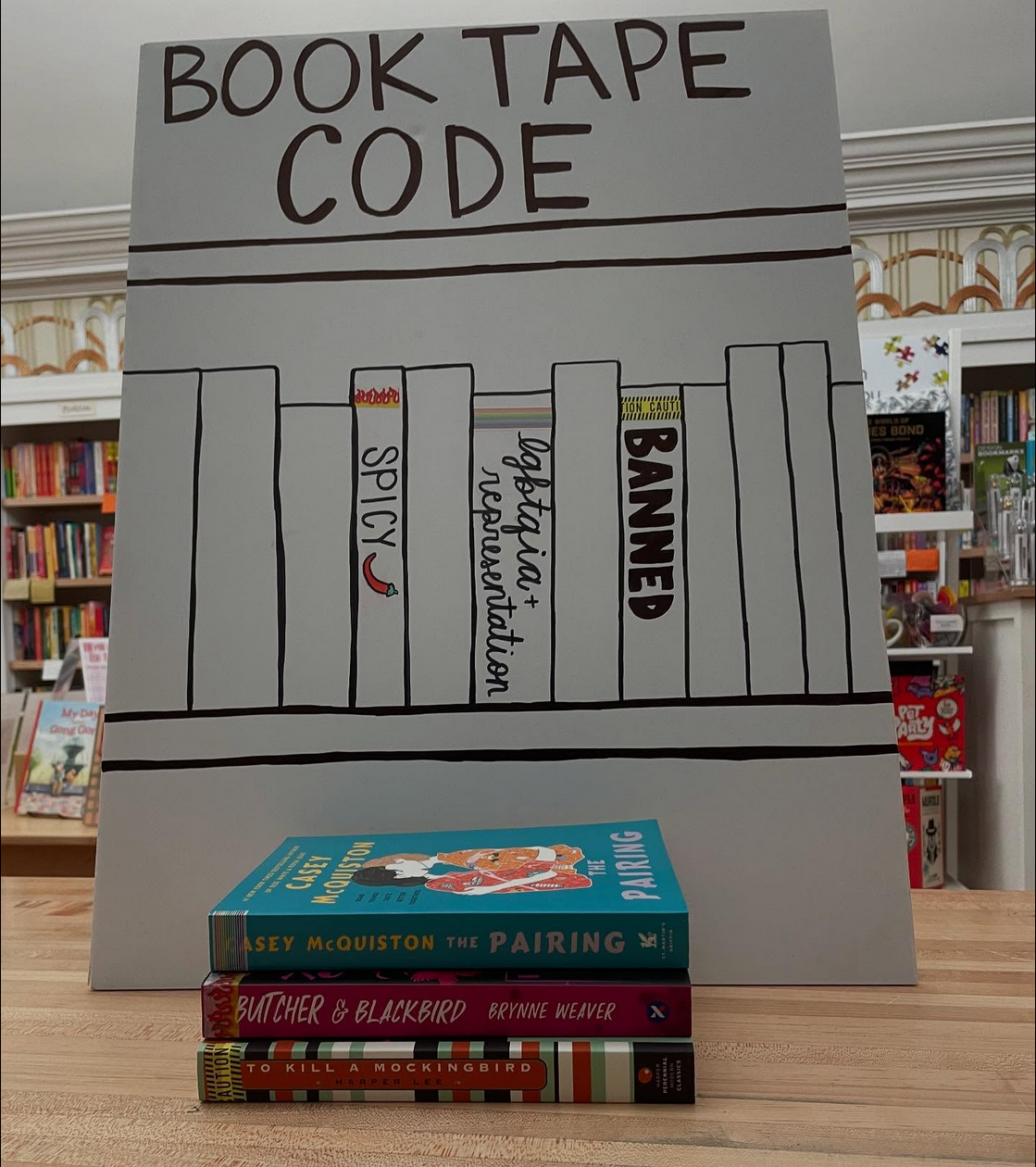 Posted by
Posted by 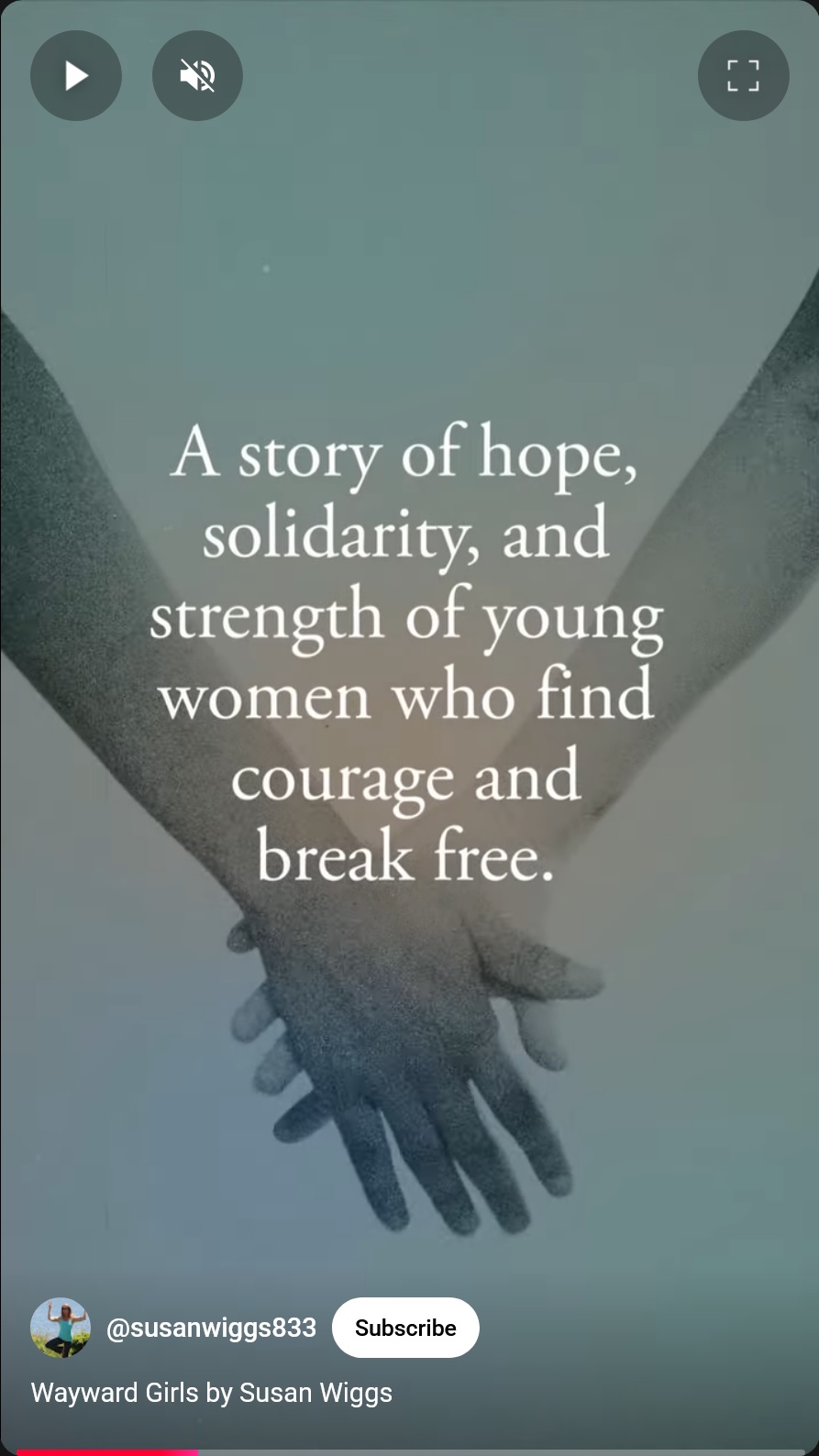 Wayward Girls
Wayward Girls